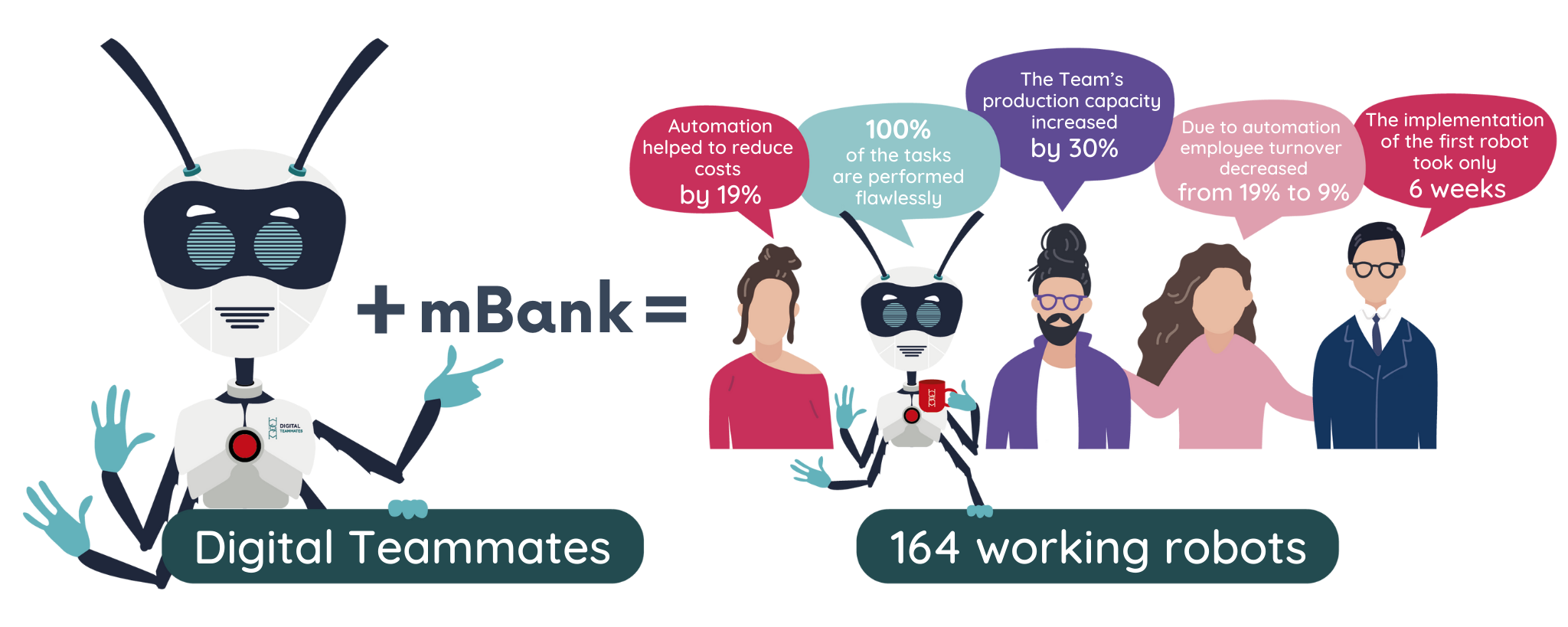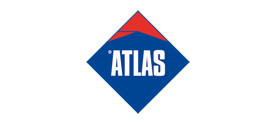Case Study mBank

Before robots came to work…
Imagine an operations department in a large bank. Really large.
A hundred employees sit at their desks. You can hear the clatter of keys as people type and the murmur of conversations. Every now and then the quiet is interrupted by an abrupt word or laughter. In the background printers and AC whirr as winter light shines through the window.
Every day a hundred people come to work, sit at their desks and do virtually the same, repetitive tasks. They prepare and register requests, generate reports and see hundreds of tables, numbers and names flash on their screens throughout the day. Do these people like their job?
Now imagine their manager. Does he like his job? Everyday he gets to his work, wondering if someone quits their job or how many people will quit. There is a double-digit employee turnover in his team and deadlines are fast approaching all the time.
This is the reality of operations teams in large institutions. When we took over operations from mBank, we knew that without innovative solutions we’ll face similar challenges such as:
- considerable volume variations,
- turnover among discouraged employees,
- errors in finance and personal data caused by employee fatigue.
Decision made: we’re hiring robots!
We first implemented automation in the bank operations.
What’s understandable with this kind of changes, our employees were worried about robots taking their job. How is it going to be? Will there be any work left for us? What if it turns out that we’re not needed anymore?
For a manager, it is particularly difficult to watch these anxieties. After all, it is his decision to make and, as we know, making the wrong decision that has such a broad impact can have particularly unpleasant consequences. It is true, though, that in a VUCA world everyone has to make decisions quickly and consistently – the decisions you haven’t yet made catch up with you faster than those you have already made. Which is why – though changes are always risky – we were determined to implement automation in cooperation with the team.
We explained to the employees what automation would mean for them, e.g. robots would take their most disliked tasks. We also got employees involved in the robot development and we prepared them for the implementation.
After we’d conducted the analysis of the automation potential, we found many processes which were perfect matches for automation: they were repetitive, tedious, standardised and required handling a large number of digital data. Meanwhile we came up with what’s probably the best HR idea of the last few years: we created the Robo Shepherd team. We offered a reskilling program and an opportunity to join the Robo Shepherd team to the people whose job might have been in danger because of automation.
Right now our robotics department consists mostly of people with an operations background. The employees who still work in operations have become a part of an extremely innovative team where people work together with robots. Thanks to their digital teammates people gained more time and opportunities to handle more complex cases and to supervise the work done by robots. This new situation gave the employees even more room for growth, while mBank could free up some of the office space which was rented to another company. 






